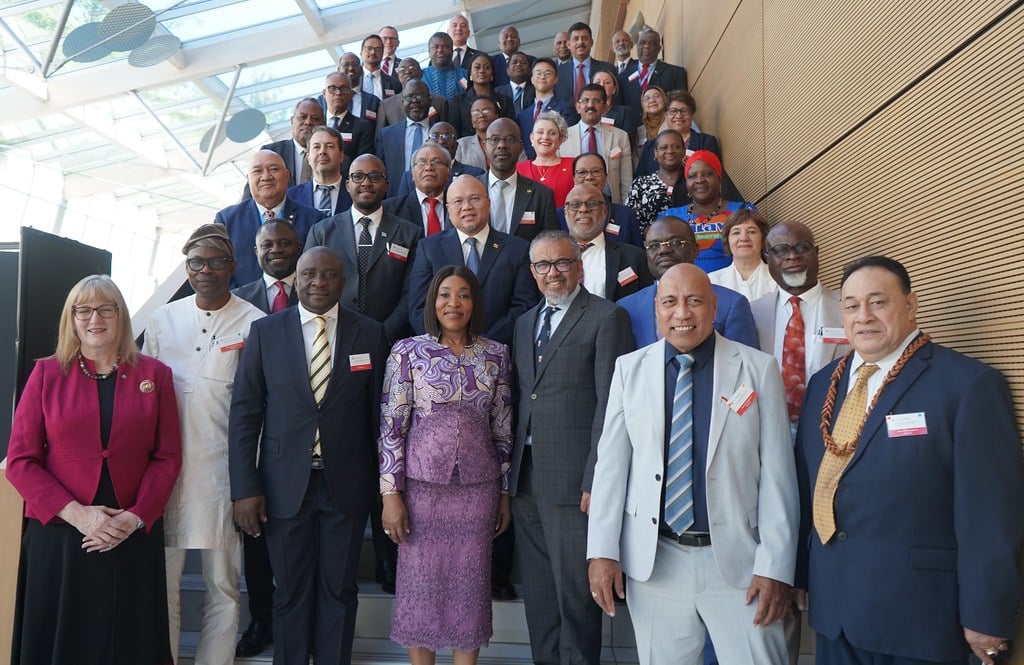
It has been long-established that there is a link between climate and health, and the impact is already being seen and felt.
According to the WHO, between 2030 and 2050, there will be 250,000 additional deaths annually resulting from climate-sensitive conditions such as undernutrition, infectious diseases, and heat-related illnesses.
At the 26th Conference of the Parties (COP) in Glasgow in 2021, there were calls for urgent and focused attention on the link between the two. As the climate crisis becomes more acute and funding for development remains constrained, the need to prioritise action is even more acute.
COP28 in Dubai also raised our hopes, with the endorsement of the first Climate and Health Declaration by 149 countries, including Kiribati and more than 35 other Commonwealth members. This landmark declaration emphasises the urgent need to transform health systems into climate-resilient, low-carbon, sustainable, and equitable frameworks.
In 2025, as we look toward COP30 and health-related meetings such as the United Nations General Assembly, we need to deliver on those commitments.
Even before these summits, the climate-health link is likely to be one of the areas discussed at the upcoming Commonwealth Health Ministers Meeting (CHMM) this month in Geneva, where sustained and sustainable financing will be the focus of the discussions. At the last CHMM in 2024, health ministers had amplified the alarm on urgent action to address the climate-health relationship.
Preparation saves money
While much has been written about these overlapping crises and attention focused on the likely outcomes, not much has been done. And the scale of what this actually may cost is astounding.
The old adage, a stitch in time saves nine, is borne out by research. The UN estimates that every US$1 invested in risk reduction and prevention can save up to US$15 in post-disaster recovery or US$4 in reconstruction. Similarly, investments in making gradual and immediate changes can mean less spending and less anguish in the future.
Access to climate funding remains a significant barrier for small and vulnerable countries, including Small Island Developing States such as Kiribati. Studies indicate that 70 per cent of nations lack adequate financing for essential Health National Adaptation Plans. Health projects also receive less than 0.5 per cent of international climate funding, exacerbating health challenges amidst looming and increasingly ferocious climate threats.
To support these efforts, the Commonwealth Secretariat and Kiribati, as Chair of the 2024 CHMM, have established a Working Group on Climate and Health that will foster multi-sectoral collaboration. The group will propose ways to provide countries with technical support and capacity-building on financing. Countries will also generate knowledge products and exchange relevant experiences, research, evidence, best practices and policy options.
Policy action is also necessary
Governments, multilateral organisations, and philanthropists, can all support a transition to a greener and healthier world.
- Health ministers and government officials can prioritise investments in sustainable healthcare practices, including the provision of hospital food, climate-resilient buildings, supply chain management, and transportation.
- The Commonwealth Living Lands Charter already sets out a bold vision to protect the environment while enabling people to benefit from the earth’s bounty. Committing more forcefully to these principles and funding initiatives to operationalise it would be a game-changer.
- Leaders should recommit to achieving net-zero emissions in healthcare by 2050 and ensure that policy teams prepare solid proposals to achieve this goal.
- Access to fair, affordable, and simple climate finance is essential for small and vulnerable developing nations, allowing them to implement the technologies and strategies necessary to adapt and thrive in a changing environment. Initiatives such as the Commonwealth Climate Finance Access Hub that helps countries to access much-needed funds should be supported by developed countries and donors.
The way ahead cannot be filled with good intentions alone – there must be concerted and consistent action in addition to dedicated financing. We must take immediate and coordinated action to protect public health while addressing climate challenges globally.
This is a pivotal moment for us to unite and advocate for a healthier, more sustainable future for all. Together, we can foster a sustainable future that benefits people and the planet.

